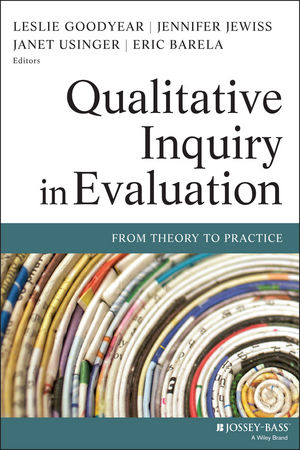Hello, I’m Norma Martinez-Rubin, a public health practitioner, program evaluator, and occasional trainer. Work projects that integrate opportunities to learn about the people for whom they are designed excite me. Hence, I find qualitative inquiry quite fitting. Focus groups and semi-structured interviews have been primary data-collection methods on evaluation studies I’ve led, guided, or to which I’ve contributed. They’ve yielded candid remarks and surprising insights about mainstream topics. At times, too, once guarded opinions have become less so when moderated discussions foster honest expression intended for project improvement.
How does one go about identifying the best course of inquiry? What methodological decisions must be made to maximize use of limited time and funding to produce maximum results? How, in a culturally appropriate way, does one acknowledge study participants’ involvement? Is there a necessity to balance the evaluator role differently when taking a consultative approach as a new, external evaluator?
Lesson Learned: Much planning, discussion, drafting protocols, redesigning, and renegotiating occurs before implementing an evaluation study. Whether working solo or collaboratively with study sponsors and other colleagues, one has to establish and foster working relationships to carry out an evaluation that yields useful findings.
Lesson Learned: Transitioning from one professional approach to another, from internal to external evaluator or vice versa requires taking stock of one’s professional strengths and using them as levers. (Quashing those strengths serves no one.)
Lesson Learned: Evaluation requires a knack for relationship building. Introverts’ inquiring minds and predilection for reflection are advantageous attributes in qualitative inquiry. They are usable when moderating discussion groups and for the focus required when doing data analysis.
Hot Tip: Quickly building rapport serves to trigger rich discussions. Never mind the misplaced argument for maintaining a sense of objective neutrality. Cold, calculated exchange is simply that: cold, calculated exchange, not genuine communication or inquiry.
Rad Resource: The editors of Qualitative Inquiry in Evaluation (Jossey-Bass, 2014) compiled authors’ research and experiences that illuminate the theory, purpose, and application of qualitative inquiry. The editors write of their own discoveries in the process of producing the book. They also invite the reader to examine what constitutes quality in qualitative inquiry.
Rad Resource: The chapter titled, Balancing Inside-Outsider Roles as a New, External Evaluator in Qualitative Inquiry in Evaluation: From Theory to Practice (Jossey-Bass, 2014) illustrates how personal curiosity, professional training, and personal experiences can function as levers when designing and implementing protocols for focus groups and semi-structured interviews.
The American Evaluation Association is celebrating Qualitative Evaluation Week. The contributions all this week to aea365 come from evaluators who do qualitative evaluation. Do you have questions, concerns, kudos, or content to extend this aea365 contribution? Please add them in the comments section for this post on the aea365 webpage so that we may enrich our community of practice. Would you like to submit an aea365 Tip? Please send a note of interest to aea365@eval.org. aea365 is sponsored by the American Evaluation Association and provides a Tip-a-Day by and for evaluators.

